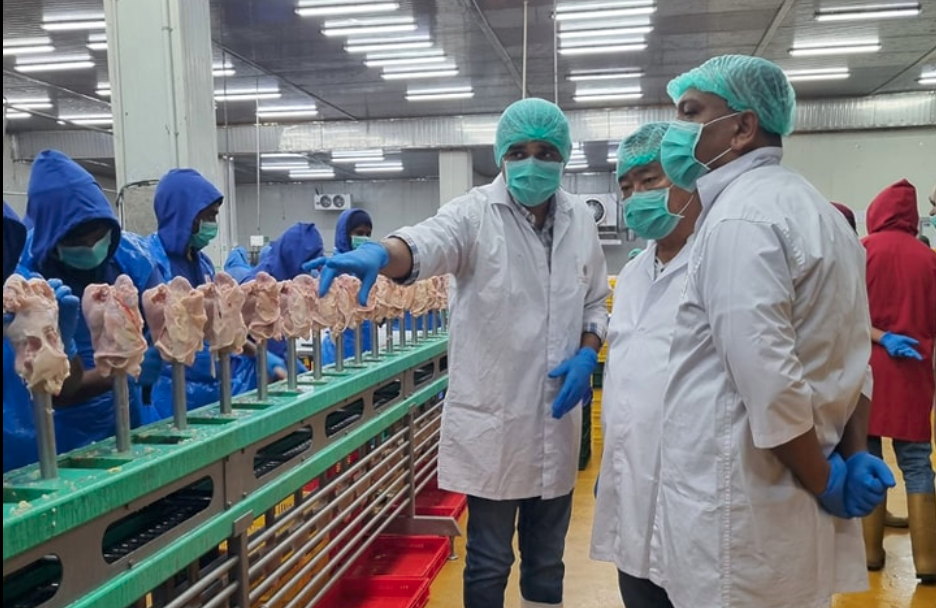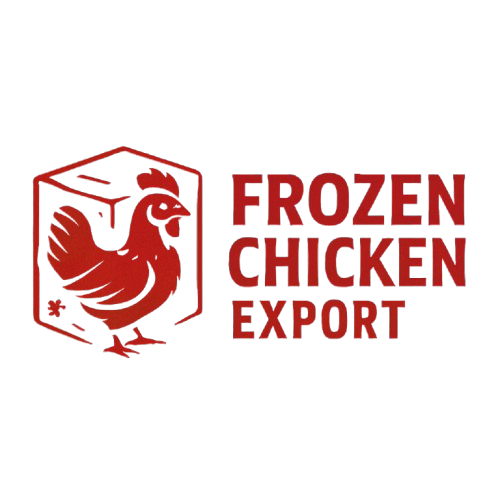How Our Thai Processing Plants Maintain International Hygiene Standards
Thai Frozen Chicken Processing Plants – Thailand has emerged as a leader in poultry processing worldwide, renowned for its rigorous hygiene protocols and commitment to food safety. Our Thai frozen chicken processing plants exemplify this dedication, clinging to and often surpassing international standards to ensure the delivery of safe, high-quality chicken products to consumers around the world.
Hold Fast to Global Food Safety Certifications
Our facilities are certified under multiple international standards, reflecting our unwavering commitment to food safety:
* HACCP (Hazard Analysis and Critical Control Points): Implemented to identify and control potential hazards throughout the production process.
* GMP (Good Manufacturing Practices) Ensures that products are consistently produced and controlled according to quality standards.
* ISO 22000: Recognised by the Global Food Safety Initiative (DFSI), This certification demonstrates our commitment to continuous improvement in food safety management.
These certifications are not mere formalities; they are integral to our daily operations, ensuring that every product meets the highest safety standards.
Firm Hygiene Protocols in Processing
Maintaining impeccable hygiene is paramount in our processing plants:
* Personal Hygiene: Employees undergo regular health checks and are trained in proper hygiene practices, including mandatory hand washing and the use of protective clothing.
* Equipment Sanitation: All equipment and utensils are cleaned and sanitised regularly to prevent cross-contamination.
* Controlled Environments: processing areas are designed to minimise contamination risks, with controlled airflow and restricted access to ensure a clean environment.
These measures align with the guidelines set forth in the Thai Agricultural Standard TAS 9008-2006 ensuring compliance with national and international hygiene standards.
Advanced Chilling and Freezing Techniques
Post-processing, our poultry products are rapidly chilled to inhibit bacterial growth:
* Chilling: Carcasses are cooled to 4 degree celcius or lower within specified timeframes based on weight, as mandated by Thai regulations.
* Freezing: Products intended for export are frozen using advanced techniques to preserve quality and safety during transportation.
These processes are critical in maintaining the freshness and safety of our products from plant to plate.
Comprehensive Allergen Management
Recognising the importance of allergen control, our facilities have implemented robust programs:
* Identification and Labelling: All potential allergens are clearly identified and labeled on packaging, adhering to both Thai and international regulations.
* Preventive Measures: Strict protocols are in place to prevent cross-contact, including dedicated equipment and thorough cleaning procedures.
These practices ensure that consumers with food allergies can trust the safety of our products.
Commitment to Environmental Sustainability
Beyond food safety, our plants are dedicated to environmental stewardship:
* ISO 14001 Certification: Demonstrate our commitment to minimizing environmental impact through effective environmental management systems.
* Waste Management: Implementing recycling programs and waste reduction strategies to promote sustainability.
* Energy Efficiency: Utilizing energy-efficient technologies and practices to reduce our carbon footprint.
These initiatives reflect our holistic approach to responsible production.
Traceability and Transparency
Ensuring product traceability is vital for food safety and consumer trust:
* Digital Tracking: Utilizing advance systems to monitor products throughout the supply chain, from sourcing to distribution.
* Record keeping: Maintaining detailed records to facilitate swift action in the event of any safety concerns.
This transparency allows us to uphold accountability and swiftly address any issues that may arise.
Continuous Improvement and Training
Our commitment to excellence is reinforced through ongoing training and development:
* Employee Education: Regular training sessions ensure that staff are up to date with the latest food and safety practices and technologies.
* Process Evaluation: Continuous assessment and refinement of processes to enhance efficiency and safety.
By Fostering a culture of continuous improvement, we maintain our position at the forefront of the industry.
Beyond Hygiene – How Modern Thai Poultry Plants Lead the Industry
As a world class food safety expectations rise, modern frozen chicken processing plants in Thailand are nor just meeting standards – they’re redefining them. In This section, we dive deeper into the innovation sustainability, and compliance practices that make facilities world-class
* Robotic Evisceration $ Deboning: Precision robots reduce human contact, significantly lowering contamination risks.
* Automated Quality Control: High-resolution imaging and AI are now used to detect imperfections in carcasses and cuts.
* Throughput Consistency: Automated processing lines ensure uniform cuts and faster processing, ideal for high volume export:
Automation helps maintain consistent output, ensuring buyers receive uniform, export-quality poultry every time.
How we Ensure Cold Chain Integrity in Frozen Chicken Exports
Maintaining product integrity from factory to destination is non-negotiable.Here’s how our logistics operations ensure the cold chain is never broken:
* Real Time Monitoring Systems: GPS and loT- enabled thermometers track container temperatures during shipping.
* Pre-cooling protocols: Products are cooled to export- ready temperatures ( Below – 18 degree celsius within 90 minutes from processing.
* Partnered Cold Storage HUbs: We collaborate with certified third- party cold storage providers to maintain optimal transit conditions
Learn more about Cold Chain Management from Global Cold Chain Alliance.
Meeting Halal Certification Standards in Poultry Processing
With rising demand from Muslim-majority markets, halal compliance is essential:
* Supervised Slaughter: Trained Muslim slaughter men oversee every stage, from invocation to cut.
* Independent Audits: Facilities are inspected by global halal bodies like JAKIM (Malaysia) and they Halal Authority Board (UK)
* Dedicated Halal Zones: Separate pricing lines prevent cross-contamination with non-halal product.
See our article on rising demand for halal poultry in Africa and the middle east.
Worker Safety and Sanitation Practices in Poultry Facilities
Safety for our team members directly translates to product safety for end consumers
– Regular Health Checks: Mandatory health screenings are performed on all staff entering processing zones.
– Protective Gear & Uniform Protocols: disposable gloves, masks, hairnets, and sanitized boots are standard.
– Hygiene Corridors: Staff must pass through hand-sanitizer tunnels and air showers before entering high-risk zones.
Waste Management and Sustainability in Chicken Processing Plants
Sustainability isn’t just a buzzword – it’s an operating principle.
* Water Reuse Systems: Up to 60% of water used in cleaning is recycled for secondary cleaning stages
* Byproduct Vaporization: Feathers, Blood and Fat are processed into animal feed or biodiesel.
* Zero-Landfill Initiatives: We aim to repurpose all waste and use compostable or recyclable packaging materials.
Thailand Board of Investment on Sustainable Agriculture
Understanding SPS (Sanitary and Phytosanitary) Compliance
Complying with SPS measures is crucial for global market access:
1. EU requirements: Compliance with EU Regulation 853/2004 and pre – approved slaughter facilities.
2. China’s GACC Requirements: Mandatory registration under Degree 248 and regular sample testing.
3. GCC Import Rules: Focus on halal, storage temperature integrity, and origin certification.
Explore our guide on Importing frozen chicken to China
Why Certification Like BRC, ISO and FSSC Matter
Third-party audits validate our processes and build trust with global buyers:
* BRC Global Standard for Food Safety: Recognised by UK and EU retailers.
* ISO 22000: Offers transparency in documentation and traceability.
* FSSC 22000: Combines ISO Standards with sector -specific requirements.
These certifications make it easier for distributors to meet import standards and assure end – consumers of consistent quality.
Technology Trends in Poultry Processing: From Blockchain to loT
We’re stepping into the future by integrating smart tech across the supply chain:
– Blockchain for Traceability: Every product’s journey is recorded – enhancing transparency for end – consumers.
– loT Sensors: Monitor processing equipment health and ensure optimal cleaning schedules.
– AI Predictive Analytics: Improve yield forecasting and help reduce food waste.
You can read more on Blockchain in food supply chains.
In the global frozen poultry industry, success hinges not just on hygiene but on comprehensive excellence. Thai processing plants like ours are setting the benchmark – through rigorous standards cutting edge technology, sustainable practices, and an unwavering commitment to quality.
By aligning our operations with global expectations and continually improving through data driven decisions, we not only meet regulations but ear long term trust from distributors, retailers, and consumers alike.

